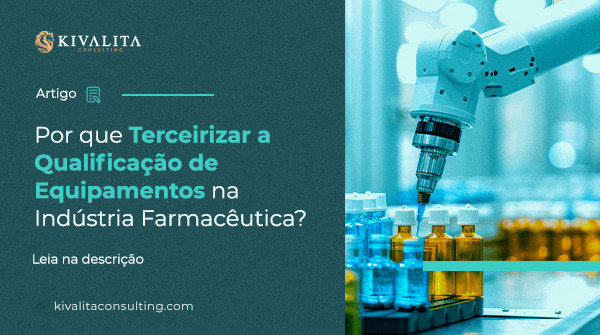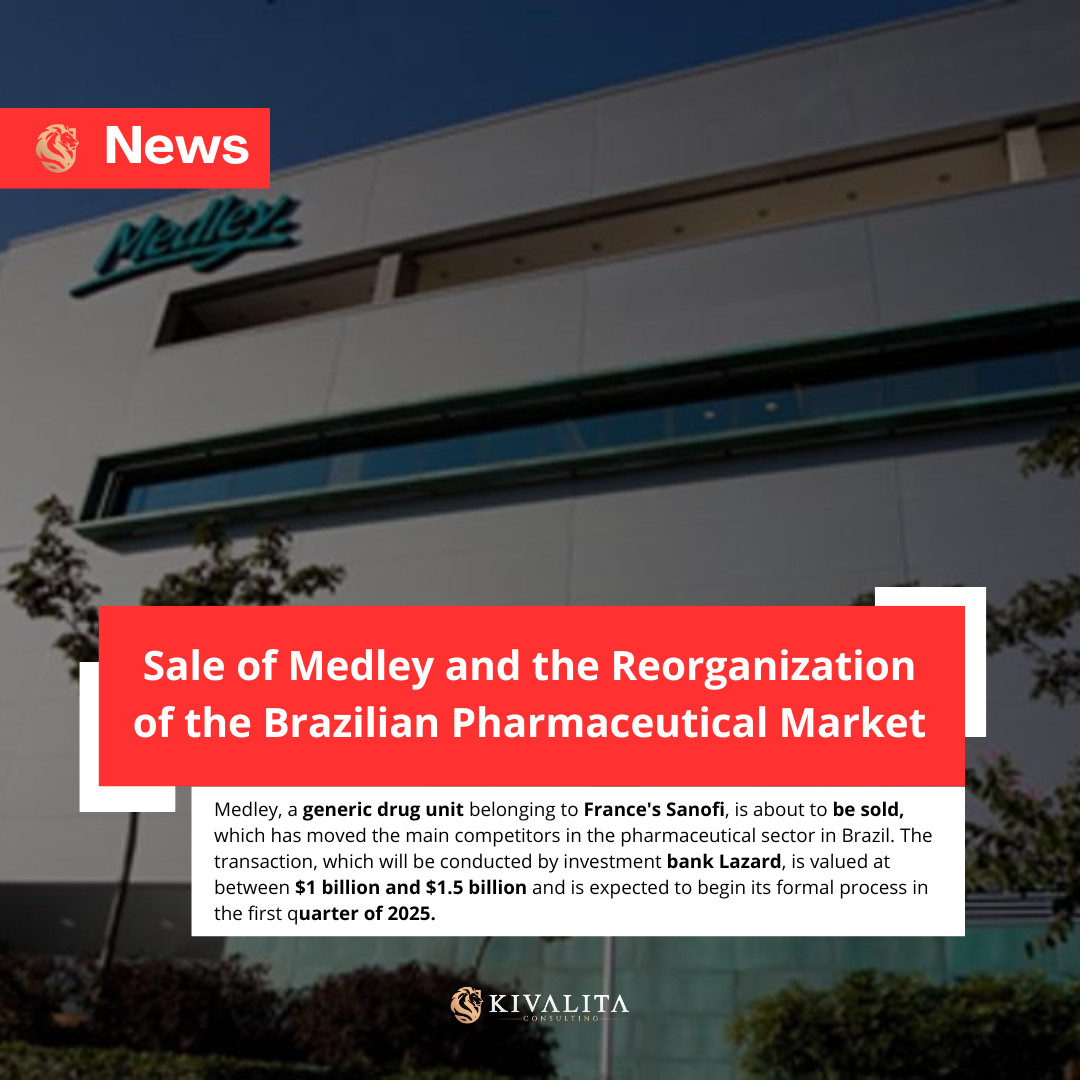Equipment qualification is a systematic process that aims to ensure that equipment meets the technical and regulatory requirements necessary for its safe and efficient use.
In the pharmaceutical industry, it is a complex and structured journey, ranging from defining requirements to continuously monitoring performance. Governed by RDC 658/2022, this activity requires each step to be accurately documented and executed to ensure regulatory compliance and the quality of the final product.
With so many interdependent steps, many companies opt for outsourcing, relying on experts to manage the process efficiently and assertively. Kivalita Consulting, a leader in this segment, is the ideal partner to ensure the flawless execution of each stage of the qualification.
Relevant legislation
The mandatory qualification falls with greater impact on the pharmaceutical industry, when it comes to obtaining certification of good manufacturing practices. The need for the process is mentioned in RDC 658/2022, and in IN 138/2022 on Good Manufacturing Practices complementary to qualification and validation activities, more details are placed on how this process takes place and what must be done by companies.
You can find these legislations above on the ANVISA website.
The Equipment Qualification Journey
Equipment qualification follows a structured sequence of steps, as illustrated in the image:
- Master Validation Plan (VMP)
- Defines the scope, timeline, and responsibilities of the qualification process.
- Requirements and Specifications (ERU/URS)
- Document the technical and functional expectations of the equipment, including integration with automation systems.
- Risk Analysis
- Identifies and evaluates potential failures that may impact equipment safety and compliance.
- Technical and Functional Specifications
- They include the technical and operational details of the equipment, considering electrical, mechanical design and operational interfaces.
- Commissioning of Installation and Operation (FAT/SAT)
- Ensures that equipment is installed and operates to specifications prior to the execution of formal qualifications.
- Installation Qualification (IQ)
- Verifies that the equipment has been installed correctly by validating components, connections, and configurations.
- Operational Qualification (OQ)
- Evaluates the operation of the equipment under normal operating conditions.
- Performance Qualification (QD)
- Tests equipment under real-world and extreme conditions, ensuring consistency and reliability in results.
- Monitoring Eligibility Status
- Tracks equipment performance over time, ensuring ongoing maintenance and compliance.
Benefits of Outsourcing Qualification
- Access to Specialized Expertise
Outsourcing with companies like Kivalita Consulting ensures that all steps, from PMV to continuous monitoring, are carried out by specialists familiar with the requirements of RDC 658/2022.
- Complete and Integrated Management
From risk analysis to the delivery of the final report, Kivalita offers a holistic approach, aligning all stages and integrating technical and regulatory requirements.
- Cost Reduction and Agility
Delegating execution to an outsourced team eliminates the need to train internal teams, reducing fixed costs and speeding up project completion.
- Complete Preparation for
AuditsThe documentation generated by Kivalita follows strict regulatory standards, facilitating approval in audits by Anvisa and international organizations.
- Focus on the Core Business
Outsourcing upskilling allows your company to stay focused on strategic operations while experts take care of technical and regulatory requirements.
How Kivalita Consulting can help
At Kivalita Consulting, we understand that each client has unique needs and we offer customized solutions to meet the specific demands of equipment qualification.
Our services include:
- Drafting Protocols: We develop detailed protocols for each step, including FAT/SAT, QI, QO, and QD, aligned with technical and regulatory requirements.
- Execution of Tests and Analysis: We perform comprehensive tests that simulate real and extreme conditions, ensuring the robustness of the equipment.
- Complete Documentation: We produce final reports with all the necessary records for audits and inspections.
- Technical Training: Training of your team to operate qualified equipment and monitor its maintenance.
- Continuous Monitoring: We ensure that the qualification status is maintained throughout the life cycle of the equipment.
Outsourcing equipment qualification in the pharmaceutical industry is a strategic choice that combines efficiency, safety, and regulatory compliance. With Kivalita Consulting, your company has access to a reliable partner that ensures the flawless execution of each step of the process, from planning to continuous monitoring.
Do you want to optimize the qualification of equipment in your operation? Contact Kivalita Consulting and find out how we can turn your compliance into a competitive advantage.



